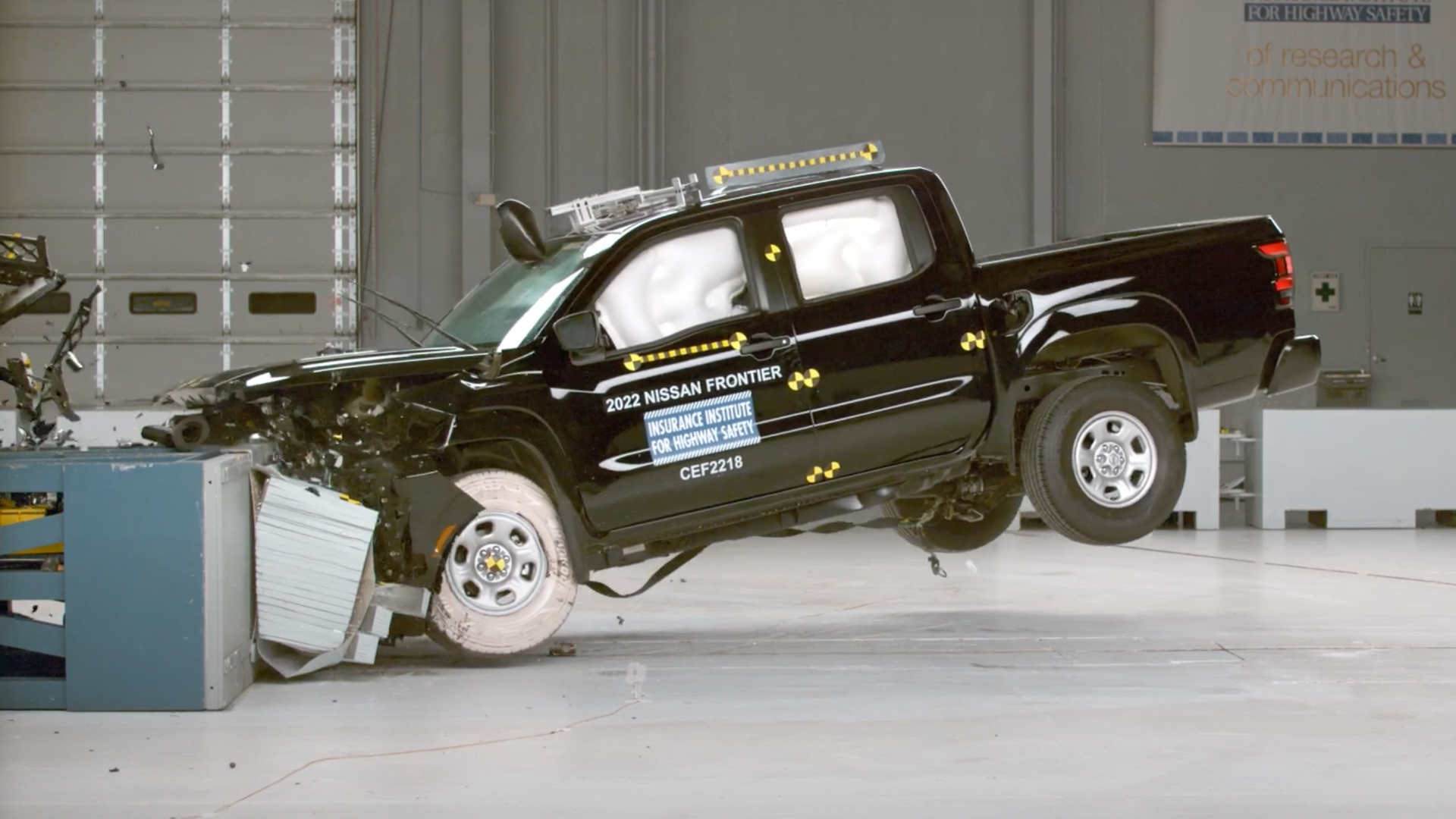

The last time the IIHS did some backseat safety testing, it concluded that the rear seats of small cars such as the Toyota Corolla and Honda Civic weren’t very safe. In fact, very few small cars were even rated as acceptable by the IIHS, with most of them getting poor backseat safety ratings. Now, it seems that lack of backseat safety applies to small pickups as well.
These backseat safety tests are done in the moderate overlap front crash test, in which a car hits a deformable barrier at 40 mph but not directly head-on. Instead, the car hits the barrier with only the driver’s side half of the front end. Not only is that far more common of a real-world collision than a direct hit, but it’s also a more difficult test to pass, so it’s a good indication of how safe a car is. During the moderate overlap test, none of the five pickups tested received good marks.
“Our updated moderate overlap front crash test proved to be challenging for small pickups,” said IIHS President David Harkey. “A common problem was that the rear passenger dummy’s head came dangerously close to the front seatback, and in many cases, dummy measurements indicated a risk of neck or chest injuries. All these things tell us that the rear seat belts need improvement.”

The trucks that were tested were the Ford Ranger, Nissan Frontier, Chevy Colorado, Toyota Tacoma, and Jeep Gladiator. Of those, only the Jeep received an acceptable rating for rear-seat passengers. The Nissan, Chevy, and Toyota all received marginal ratings, while the Ford was considered poor. While all of the trucks received good front seat crash protection ratings, their backseat performance tanked their overall scores. Of those five trucks, only the Nissan Frontier took home an average overall rating. The Ranger was marginal but the rest were poor.
Rear seatbelts and restraints seem to be the culprit here. They seem to lack the ability to hold rear passengers in place well enough during a crash, allowing crash dummies to either hit the back of the front seats or “submarine” under them. Submarining is when a person slides under the lap belt, allowing it to come up further into their chest, which can cause serious injury during a crash.
Admittedly, the Toyota Tacoma tested here was a 2022-2023 model, which is going to be replaced this year. How the new model fairs is obviously unclear, as it hasn’t gone through testing just yet, but it’s worth noting.
There seems to be a common thread of inexpensive cars not having the best backseat safety ratings. Is that just because smaller, cheaper cars have less money invested into backseat safety? Regardless of the reason why, there’s no denying these crash test results.
Got tips? Send ’em to tips@thedrive.com